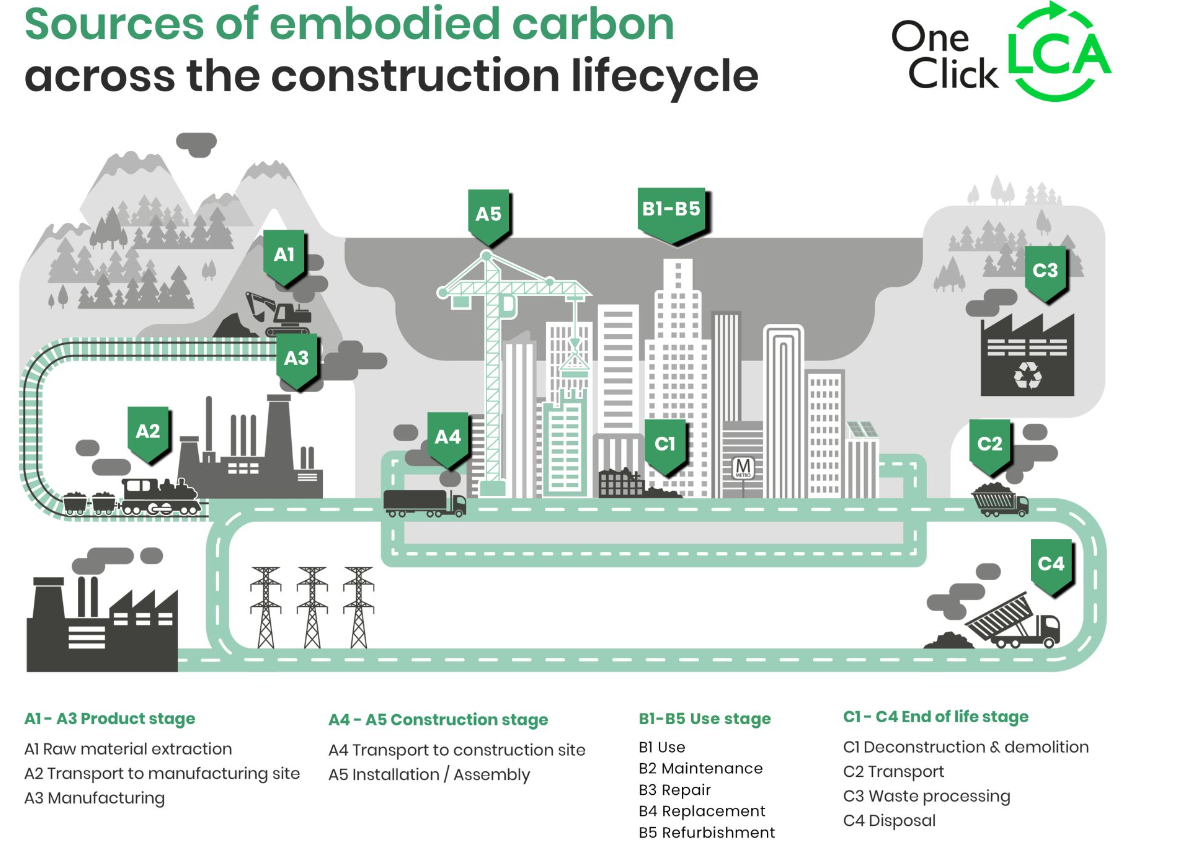LCA (Life Cycle Assessment), or “Ανάλυση Κύκλου Ζωής” in Greek, is a method used to evaluate the environmental impacts associated with all stages of a product’s or service’s life. This includes the extraction and processing of raw materials, production, distribution, usage, and, ultimately, waste management. LCA is a tool that helps businesses and organizations understand and reduce the environmental footprint of their products and services.
What is LCA?
Life Cycle Assessment (LCA) is a systematic and quantitative method that allows for the estimation of the environmental impacts of a product or service throughout its entire life cycle. LCA covers all phases of the life cycle, from raw material extraction and production to usage and final disposal. This analysis involves collecting data on energy and raw material consumption, pollutant emissions to air, water, and soil, and waste production at each stage of the life cycle.
What LCA Offers to a Project
Incorporating LCA into a project offers multiple benefits. Firstly, it provides a clear picture of the environmental footprint of a product or service, allowing for the identification of the most significant environmental impacts and, therefore, targeted measures to minimize them. Additionally, LCA enables companies to compare different products or processes and choose those that are more environmentally friendly. This can lead to significant reductions in production costs, as well as an improved corporate image among consumers and investors, promoting sustainability.
Furthermore, LCA can aid in the development of new products and technologies that are more environmentally friendly. By understanding how different life cycle phases contribute to overall environmental impacts, companies can identify opportunities for improvement, such as using recyclable materials or improving energy efficiency. Also, applying LCA can help ensure compliance with sustainability regulations and standards, such as the European Union Regulations or International ISO Standards.
What LCA of Raw Materials Offers
LCA of raw materials focuses on the environmental impacts associated with the extraction, processing, and transportation of the raw materials used to produce a product. This analysis is critical for understanding how the choice of different materials can affect the overall environmental footprint of a product. For example, using recycled materials can significantly reduce carbon dioxide emissions and energy consumption compared to using new, non-recycled materials.
Evaluating the environmental impacts of raw materials also helps businesses make more informed choices about sourcing materials, considering factors such as supplier sustainability and the local environmental impacts of extraction. Moreover, focusing on raw materials allows for the identification and minimization of the use of hazardous or toxic substances, thereby reducing impacts on human health and the environment.
What LCA of Final Products Offers
On the other hand, LCA of final products examines the environmental impacts of the product throughout its usage and disposal process after the end of its useful life. This includes evaluating emissions resulting from the use of the product, its maintenance, and its energy consumption. For example, a car might have a low environmental footprint during production but a high footprint during its usage due to fuel consumption and emissions.
Analyzing the LCA of final products allows for identifying areas where improvements can be made, such as increasing energy efficiency or developing new, more environmentally friendly technologies. It also provides valuable insights into end-of-life product management, encouraging recycling and reuse practices, and reducing the amount of waste sent to landfills.
Conclusion
LCA is a valuable tool for understanding and reducing the environmental impacts of products and services. By analyzing both raw materials and final products, LCA helps businesses identify opportunities to improve their environmental performance while reducing costs and enhancing their reputation. By incorporating LCA into decision-making processes, organizations can promote sustainability and contribute to a more sustainable future.
The IoCT offers specialized Life Cycle Assessment (LCA) services to help organizations evaluate the environmental impacts of their products and services throughout their entire life cycle. For more information and collaboration opportunities, please contact us.

